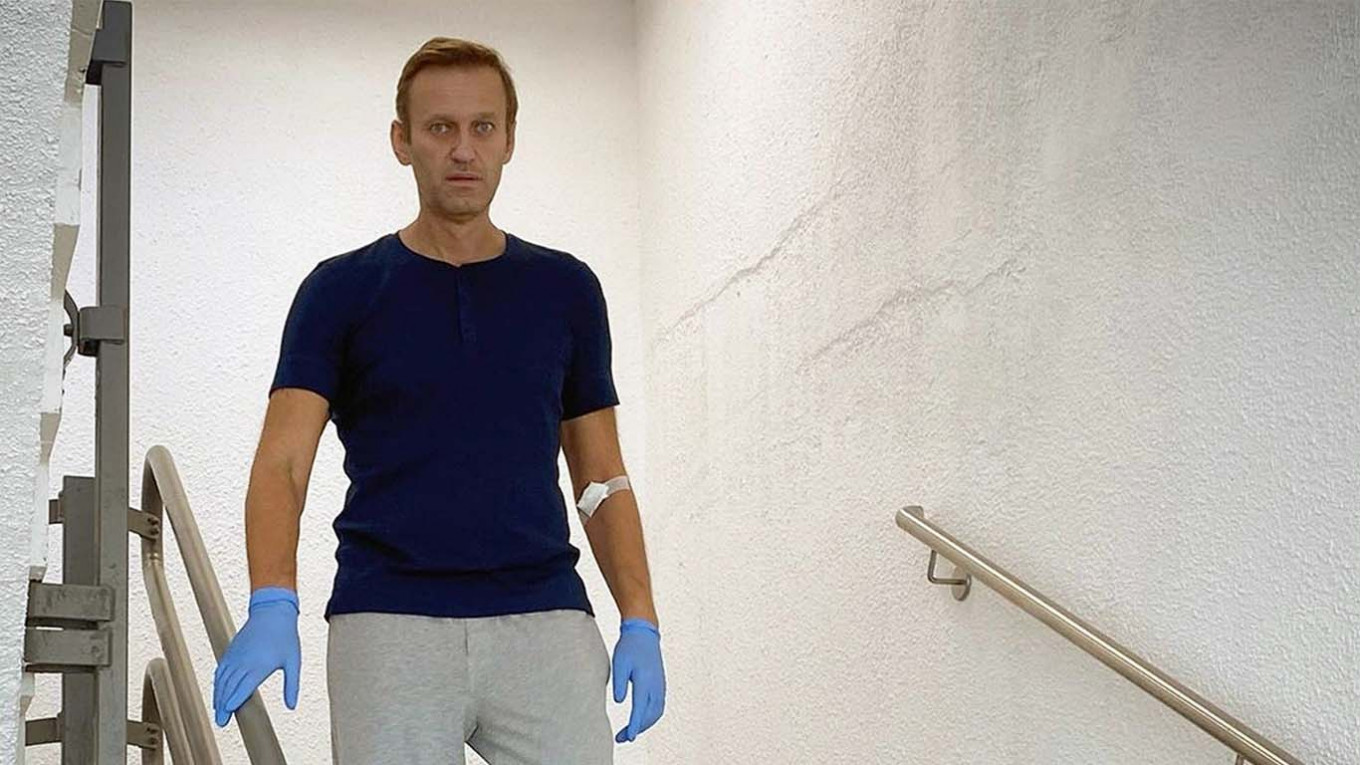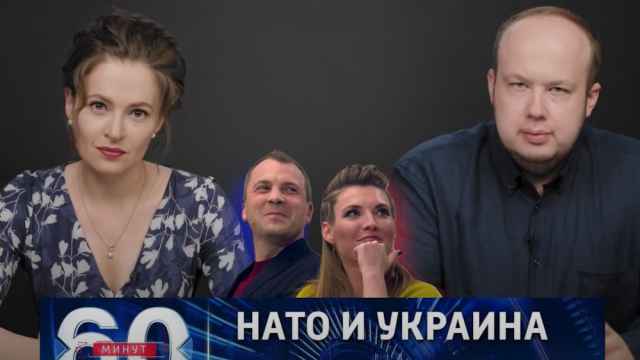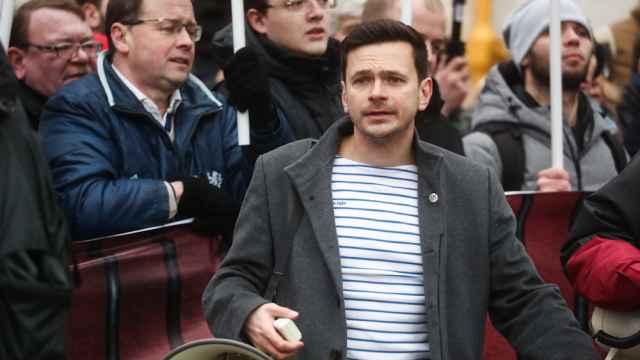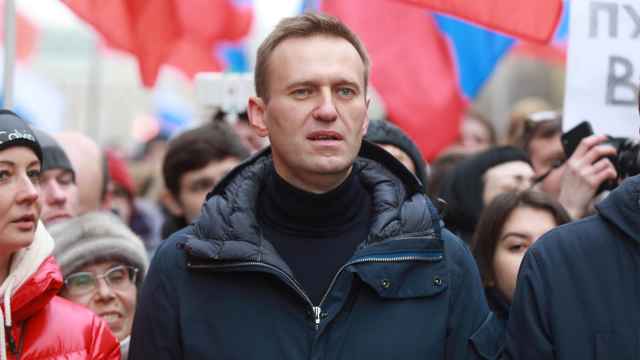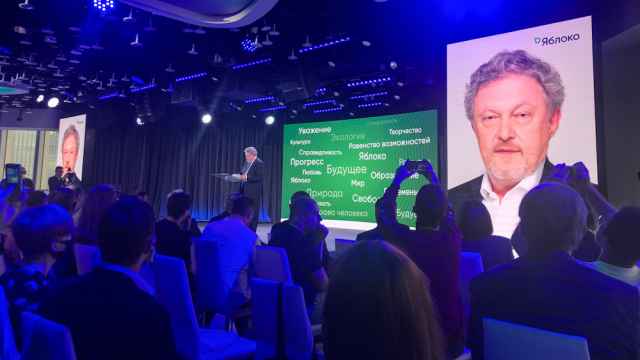Wednesday marked one week since Russian opposition leader Alexei Navalny declared a hunger strike in prison to demand medical treatment for severe back pain and numbness in his legs.
Since then, the Kremlin critic's lawyers say his health has deteriorated even further, prompting Western leaders to urge Russia to take action.
Navalny was jailed in January immediately after his return to Russia from Germany, where he had spent five months recovering from a near-fatal nerve agent poisoning he blames on the Kremlin. He was sentenced to two and a half years for violating parole on 2014 fraud charges that he calls politically motivated.
Navalny, 44, accuses prison authorities of withholding his diagnosis from him.
Here’s an overview of the health concerns he faces in a prison colony described as one of Russia’s harshest:
What Navalny and his lawyers say
— Navalny has lost at least 13 kilograms since arriving at his penal colony last month, his defense team said, and is now losing about 1 kilogram per day.
— The numbness in his legs has spread to his hands and he has a cough, lawyer Vadim Kobzev said.
— “Alexei walks by himself. Feels pain when walking. A very disturbing factor is that the disease is clearly progressing in terms of loss of sensitivity in the legs, palms, and hands,” Kobzev tweeted.
— A March 24 MRI scan showed that he has two herniated spinal disks and a bulging disk, lawyer Olga Mikhailova told the independent Dozhd broadcaster Wednesday. She added that Navalny is refusing the prison paramedic's prescribed treatment, which she cites doctors as saying has not been used in medicine for 30 years.
— “One of the hernias is quite difficult to treat and is not sufficiently described in the diagnosis. Our neurologist gave us a conclusion that the treatment that he was prescribed in the colony was ineffective and could lead to his condition worsening,” Mikhailova said.
— Navalny’s first coronavirus test results came back negative and second results are still pending, Mikhailova added. Navalny has said that he suspects tuberculosis to be the cause of his cough.
— The anti-corruption campaigner has vowed to press on with his hunger strike despite the health concerns and prison authorities’ alleged attempts to tempt him with food.
What the doctors say
— “I understand very clearly from the symptoms that he has now, that this can lead to a very severe condition, and even to death,” Navalny’s personal doctor Anastasia Vasilyeva said outside his penal colony east of Moscow.
— Navalny was moved to a prison medical unit earlier this week with signs of a respiratory infection, including a high fever, prison doctors said through state media.
— Navalny’s reported loss of sensation in his legs and weight loss are consistent with symptoms of military-grade chemical agent poisoning, associate professor of toxicology Ismail Efendiyev told Navalny’s team last week. He noted that victims of nerve agent poisoning can exhibit symptoms for up to three years after recovery.
What the Kremlin says
— President Vladimir Putin’s spokesman Dmitry Peskov said Wednesday that Navalny would be treated appropriately if he was ill, but emphasized that the Kremlin critic is not entitled to any special treatment.
What Western leaders say
— The White House is “disturbed by reports that Mr. Navalny’s health is worsening,” press secretary Jen Psaki told reporters, calling the Kremlin responsible for his well-being and urging it to ensure his safety.
— Amnesty International believes that Russian authorities are placing Navalny “into a situation of a slow death and seeking to hide what is happening,” said its secretary general Agnes Callamard.
A Message from The Moscow Times:
Dear readers,
We are facing unprecedented challenges. Russia's Prosecutor General's Office has designated The Moscow Times as an "undesirable" organization, criminalizing our work and putting our staff at risk of prosecution. This follows our earlier unjust labeling as a "foreign agent."
These actions are direct attempts to silence independent journalism in Russia. The authorities claim our work "discredits the decisions of the Russian leadership." We see things differently: we strive to provide accurate, unbiased reporting on Russia.
We, the journalists of The Moscow Times, refuse to be silenced. But to continue our work, we need your help.
Your support, no matter how small, makes a world of difference. If you can, please support us monthly starting from just $2. It's quick to set up, and every contribution makes a significant impact.
By supporting The Moscow Times, you're defending open, independent journalism in the face of repression. Thank you for standing with us.
Remind me later.


